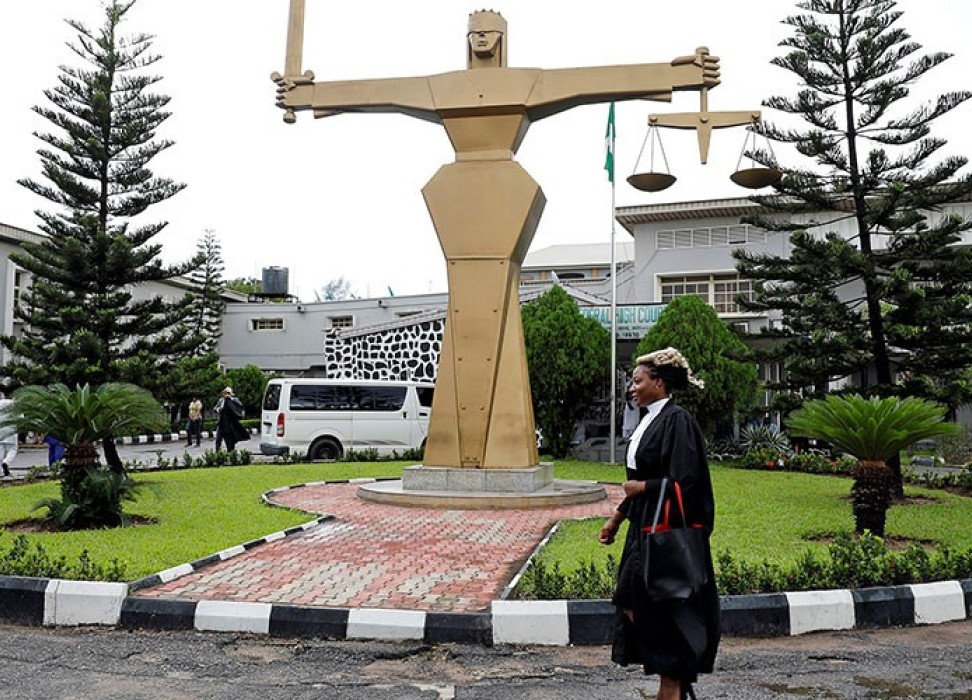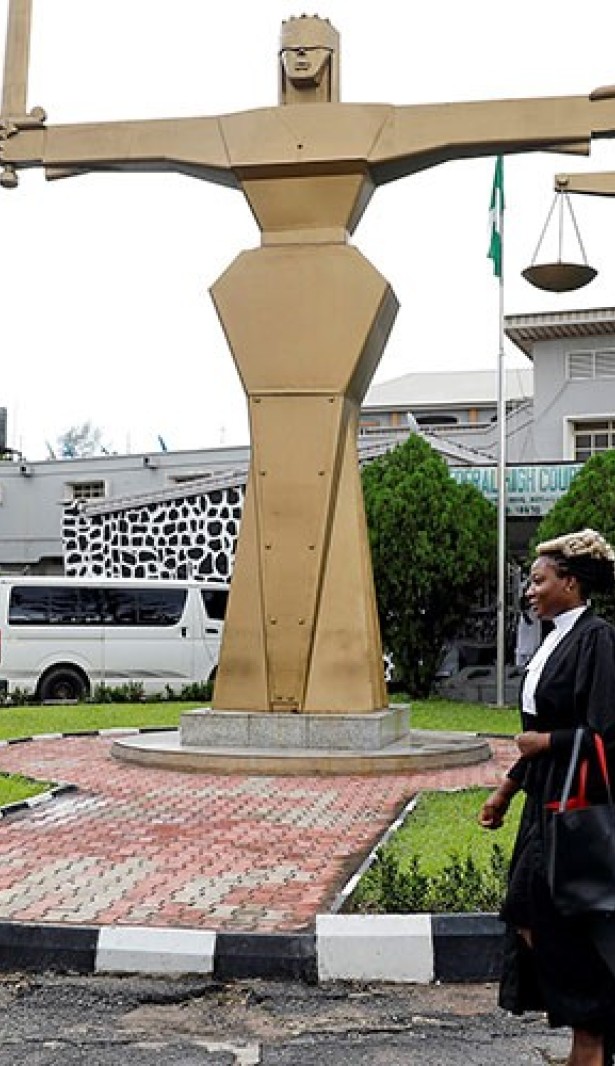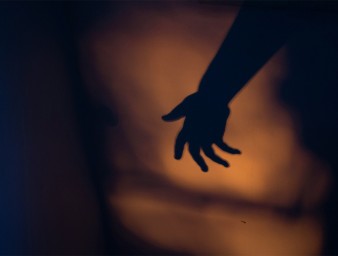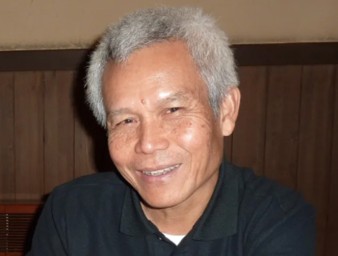Justice for Nigerian complainants supported by the UN fund for torture victims
30 October 2020

In Nigeria, Avocats sans Frontières France, an organization supported by the UN Voluntary Fund for Victims of Torture, achieves redress for three victims of torture and arbitrary detention in seminal court cases.
“Most of the clients that we represent are persons without means. They are the most vulnerable in society and cannot afford the services of a lawyer,” said Angela Uwandu, Director of Avocats sans Frontières (Lawyers without Borders) France operating in Nigeria.
Since 2014 in Nigeria, ASF France has been providing free legal services to survivors of torture in detention through their ProCAT project, with funding from the UN Voluntary Fund for Victims of Torture. The project aims to eradicate torture in that country by promoting the implementation of the UN Convention against Torture (CAT), which Nigeria ratified in 2001.
“Most people who go through the justice system, and especially the poor and vulnerable, are often brutalised by security agents, mainly the police. Most times they are forced to make confessional statements, indicting themselves in criminal matters, and these statements are then used against them during trials for offences that they may not even have committed,” said Uwandu.
With to the Fund’s support, the NGO was able to file formal complaints, involving legal counselling, representation and defence for victims of torture during criminal proceedings brought against them through forced confession.
Three ground-breaking fundamental rights rulings
This was the case for three complainants in Imo and Enugu States, Nigeria, for whom ASF France presented fundamental rights applications in 2020.
In Enugu State, a High Court granted freedom to Elvis Davis on 28 July 2020, after having acknowledged that his detention without trial from 2013 to 2020 was unconstitutional and violated his fundamental human rights to personal liberty and fair hearing, as enshrined in the 1999 Nigerian Constitution and Article 6 of the African Charter on Human and Peoples Rights.
Davis was arrested by the police and shot at close range during his interrogation. He was remanded in police custody for three months.
“The Constitution states that he should be charged and arraigned before a court of competent jurisdiction after a maximum of forty eight hours, but he was kept for three months,” Uwandu said.
One of the responsibilities of ASF France’s lawyers is to visit prisons to monitor the situation of detainees, and identify those who may have been subjected to torture. It was during such a visit that one of their lawyers based in Enugu State identified Davis.
“It was obvious he had a gunshot wound and he had not been treated. He was denied access to medical treatment and with these facts, our lawyer brought his case to the High Court in Enugu State asking for the enforcement of his fundamental rights,” she said.
“We asked for a pronouncement from the court to declare that the acts of torture meted out to the victim and the denial of access to medication amounted to a violation of his rights as enshrined in the Nigerian Constitution and also the African Charter.”
The court awarded Davis one million naira (approximately USD 2,500) in damages and he was released from custody on 29 July 2020.
In another case in Enugu State, on 27 July 2020, Jude Agha was released from custody after spending about nine months in prison without trial.
Agha was arrested for armed robbery and, during interrogation, the police threatened to kill him in his wife's presence.
In the third case, in Imo State, a High Court ordered declaratory reliefs for the torture endured by Oguchi Kelechi Ihejirika. Ihejirika was arrested in 2006 during his final high school exams. He was shot in the hand, beaten with the blades of machetes and charged with armed robbery. Before his case was identified by ASF France in 2020, the last time he appeared before a Court had been in 2007.
“He didn’t have a lawyer and had simply been abandoned in prison. It is difficult to come across these kinds of cases,” Uwandu said.
Armed robbery is a capital offence in Nigeria.
“We have this problem in Nigeria where the police arrest before they carry out the investigation. Thus, at the time of the arrest, they have absolutely no evidence,” she pointed out.
“This is why they resort to torture, to force individuals to confess to crimes - even crimes they never committed - because confession is the major evidence they go with to courts. The police toe the line of arraigning [suspects] before the Magistrate's Court, which has no jurisdiction, so the Magistrate's Court will simply remand them in prison,” Uwandu added.
When the case was called, the police did not present a defence. “So the Court assumed that was enough to say that they accepted all the allegations that the victim had made about the way he was treated, the gunshot he received, and therefore judgement was entered in Ihejirika’s favour and he was released from prison.”
Monetary reliefs in the sum of 2,000,000 Nigerian naira (approximately USD 5,000) was also granted as compensation for the unlawful, illegal and unconstitutional violations of the victim’s rights as enshrined in Sections 34 and 35 of the Constitution of the Federal Republic of Nigeria 1999 (as amended). Costs in the sum of naira 20,000 (approximately USD 50) were also awarded to the victim.
Sending a signal to security agencies
Over the years, ASF France has made their services known in Nigeria not only by visiting prisons - thanks to a respectful relationship with prison authorities who give them access - but also by placing posters in public spaces in police stations, prisons and courtrooms, that include a central number for ASF France’s offices in Nigeria’s capital, Abuja.
The latest rulings add to a streak of successful outcomes for ASF France in the country. In 2019, they provided free legal assistance to 84 victims of torture, and successfully litigated 14 judgments, which awarded compensation to the victims. Several of the cases are still ongoing before the various High Courts. For Uwandu, these rulings are important because they help dispel the wide belief, especially among lawyers, that winning cases against the police for acts of torture is impossible.
“With these judgements, we have been able to prove that it is possible for judges to make such declarations against the actions of the police. We are also able to let [lawyers] know that it is possible to sometimes rely on the affidavit evidence, and that where medical evidence is present, the case is even stronger,” she said.
“We also believe that this sort of judgements sends a signal to the perpetrators that it is not business as usual.”
Leaning on their recent successes, ASF France in Nigeria have decided to use the case of Elvis Davis in their trainings for security agencies - including the police, prison authorities, the military and other formations - to show the consequences of using torture on detainees, as well as to reveal how the courts rule in such cases.
Uwandu added that thanks to the support provided over the years by the UN Voluntary Fund for Victims of Torture, ASF France in Nigeria have been able to make a deep impact on the lives of victims of torture and expand the scope of their work, reaching out to new target states in Nigeria.
“It has been very encouraging because we do not have many donors supporting this kind of work. Nigeria has 36 states and our project is currently running in five states with only one lawyer in each of those,” she said. “Usually the demand is higher than the supply because the cases are quite prevalent, but we try to make do with the resources available to us to make the most impact that we can.”
The United Nations Voluntary Fund for Victims of Torture was established by the General Assembly Victims of Torture in 1981(resolution 36/151 - PDF) with a mandate to support torture survivors and their families. The Fund awards hundreds of grants to civil society organizations worldwide to deliver medical, psychological, legal, social and other assistance. The voluntary contributions that the Fund receives, mostly from member States, thus contribute to the rehabilitation, reparation, empowerment and access to remedies of nearly 50,000 torture survivors each year.
30 October 2020




